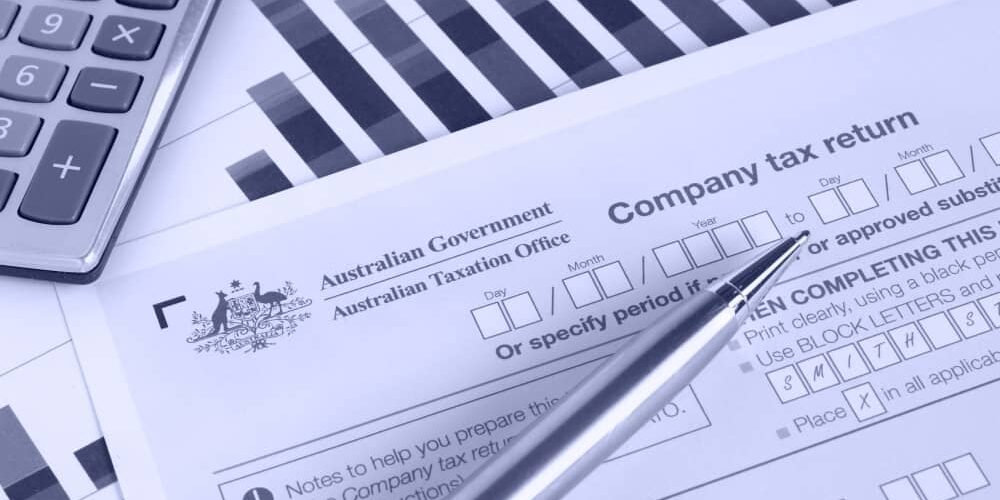Ways to Help You Prepare Your Business for Tax Return Lodgement
Tax compliance is an integral component of running any business. Being familiar with corporate tax, accounting and tax services, tax planning, lodgement due dates, and compliance with the Lodgment Program Framework is crucial to avoid penalties at the end of the financial year.
Tax or BAS agents may assist businesses in managing their tax obligations more efficiently and often get you additional time to lodge your documents. Besides effective lodgment program management, deferrals, and pre-filling services are also key aspects to consider.
Due Dates
Understanding the deadlines for lodgement and payment of corporate taxes is critical for businesses to avoid penalties. For each financial year, company tax returns are generally due by October 31, with payment due simultaneously. An extension up until May 15, may be available if using a tax agent. Lodging late generally results in the lodgement date of your next tax return being pulled forward.
Late lodgement of tax returns can incur penalties and interest charges, with penalties for late company tax returns amounting to $222 per day, up to a maximum of $11,110. Late lodgement and payment may also incur general and shortfall interest charges, which accrue daily and increase quarterly to economic trends.
Passage of time will only increase the penalties applied to your account, so be sure to maintain up-to-date records and lodge as soon as you are able. If you’re late, don’t worry! Tax agents can apply for remission of penalties and interest on your behalf should you get your affairs back in order.
Businesses should ensure they are aware of upcoming payments and plan to meet them. Documentation and financial records must remain current to allow timely filing and payments.
Tax Time
Generally, tax agents and accountants charge their services on a time-spent basis, so to reduce your yearly compliance fees you should compile all of your available documentation and ensure your accounts reconcile to those documents as of 30 June.
Documents required may contain:
- Copies of bank and loan statements displaying the balance as of the end of the financial year (usually 30 June).
- Copies of financial liability documents, including vehicle finance, insurance funding, or invoice facilities.
- Details of any assets acquired during the year, such as plant and equipment, intangible assets, financial assets, etc.
- Details of any grant income or tax incentives you have received during the year.
While tax agents are not required to review every receipt for your business, you must keep them for seven years in the event of an audit. No valid tax receipt generally denies a tax deduction.
In our experience, the great cause of increased compliance costs is a set of accounts that do not match any of the documents provided.
Tax & BAS Agent Lodgment Program
Tax Agent Lodgment Program is a service registered tax agents offer that assists businesses in preparing and lodging their tax returns. It outlines an established lodgment schedule that aligns with the Lodgment Program Framework of ATO.
Advantages of hiring a tax agent to manage tax returns:
- Tax agents provide access to expert advice. Their knowledge and expertise ensure that businesses meet their tax obligations and BAS due dates while offering planning and compliance strategies guidance.
- Tax agents save businesses time by handling paperwork and lodgment deadlines on their behalf. This frees them up to focus on growing their business without worrying about deadlines passing them by or errors occurring that could incur penalties.
- Further, tax agents are trained professionals in accurately creating tax returns, significantly lowering error risk and the potential for penalties!
Businesses partnering with tax agents must provide all the required documentation for their returns to be accurate and complete. Tax agents can also assist businesses with dealing with the ATO and managing disputes or audits arising.
Self-Lodgment Program
You can also lodge your own BAS and tax returns online (though it is not recommended to lodge your tax returns unless you are suitably qualified) via the Online Services for Business Portal. Lodgement via this portal requires the setup of the Relationship Authorisation Manager (RAM) and an invitation to the individuals in your organisation responsible, e.g., your bookkeeper.
All online services require the setup of the MyGovID application on a smartphone.
Lodgment Program Deferrals
Lodgment program deferrals may be granted in special cases, such as when a business faces financial difficulty or other extenuating circumstances that necessitate extended filing deadlines without incurring penalties. Deferrals do not happen automatically and must be applied for before being granted.
Businesses seeking lodgment program deferral must meet certain criteria and present evidence supporting their application, including financial statements, bank statements, and other relevant documentation. Applications for deferral can be submitted online through the ATO’s Business Portal or directly. Businesses should apply as soon as possible to avoid penalties and interest charges.
Pre-Filling Service
The Australian Taxation Office’s (ATO) Pre-Filling Service is an online service provided by them that makes tax return preparation simpler for businesses. The Pre-Filling Service automatically fills certain fields on tax returns with information collected by third-party sources such as banks and employers – saving both time and reducing errors during return preparation.
Businesses need a registered tax while accessing pre-filling service or BAS agent or have their ATO online account linked with myGov. Once logged in, they can view pre-filled information and use it to complete their tax return.
Pre-Filling Services provide businesses with an easy way to ensure accuracy and reduce penalties related to tax return filing errors, save time, and streamline the tax return preparation process. Doing so gives businesses more time and energy for other operations.
In Detail
Businesses should gather all pertinent documents as part of their tax return filing preparations. This may include:
Financial statements such as profit and loss statements and balance sheets must be for an audit. You should keep records of all income and expenses. These include invoices, receipts, bank statements to account for them all, deductions or tax offsets that may apply, and details about any assets purchased or sold during the financial year.
Information relating to any superannuation contributions made on behalf of employees – Any relevant financial details.
Organisation and documentation of this information are crucial for businesses in preparing accurate tax returns that minimise errors or penalties. Knowing lodgement due dates allows enough time for preparation and lodgement without incurring late lodgement penalties. Following a checklist and being proactive during tax preparation ensures compliance with tax laws and avoids potential financial and legal issues that might arise from late lodgement penalties.
Tax Return Lodgement Preparation with Origin Business Consultants
Tax return lodgement preparation is a key aspect of managing any business. Knowing the due dates, understanding your lodgment program framework, and using tax agent and BAS agent services will all help facilitate an easier experience. Utilising pre-filling Services can aid this process significantly.
Businesses should prepare early and act decisively for tax return filing to reduce penalties and stress levels associated with the filing. Staying organised while compiling all relevant information and documents is vital.
If you need assistance with accounting and tax planning, review our business tax return services today and connect with our experts. Don’t wait; start planning for tax time now. Our team of specialists offers personalised solutions tailored specifically to your business needs.


